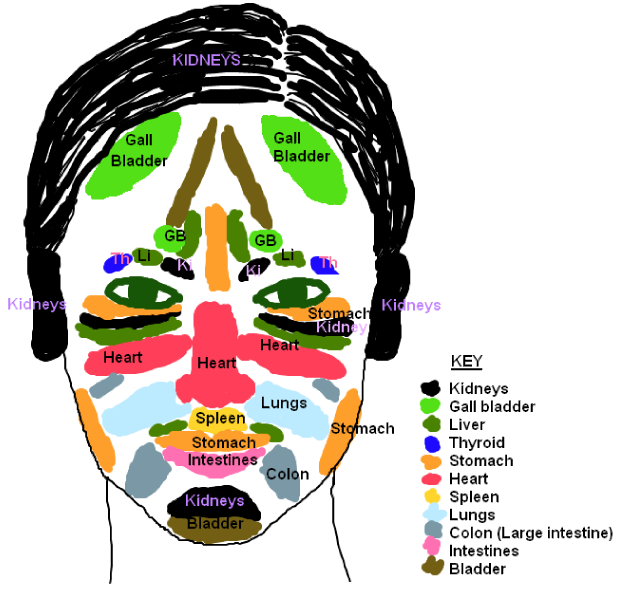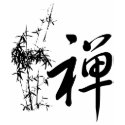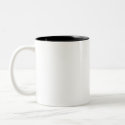Why do I get spots in certain places on my face and not others?
Have you ever wondered why you get a spot exactly at a particular location on your face?
According to Traditional Chinese Medicine (TCM) the spots on your face do not pop up randomly. Their position on your face is meaningful because in TCM different areas of the face relate to certain TCM organs. Each TCM organ carries with it both an emotional meaning and a connection to related body systems that need strengthening if a weakness (i.e. a pimple) is evident. The face is like a mirror of the body and mind.
Which TCM organs link to which areas of the face? Here is a Chinese face map to help with acne mapping:

It’s important to note that when we talk about TCM organs like the “Liver”, “Gall Bladder”, “Lungs”, “Heart” etc., we don’t mean the Western anatomical organs which we are familiar with. The TCM organs may have the same names but they relate to a theoretical “organ” which (slightly confusingly) has the same name. So just to clarify, when it is written below that there’s something wrong with your “Heart” region, this doesn’t mean you actually have something wrong with your anatomical heart, but rather with the TCM definition of the “Heart”. In addition, the related health and emotional implications of each TCM organ may sound bewilderingly unrelated to the organ in question (for example TCM “Kidneys” affect ear health and reproduction). Though it may sound strange given our knowledge of medicine and science, through thousands of years of carefully developed TCM theory, it all makes sense, so an open mind respecting the potential of ancient wisdoms is needed whilst reading this article.
The TCM theory is based on years of observation rather than hard scientific fact, so whilst it may be wise to take things with a pinch of salt, from personal experience I believe that being open-minded about it could lead to some interesting realizations about yourself and your current emotional and physical state.
So without further ado, let us look at what it means if you have acne, spots or pimples within the certain TCM organ zones of the face:
Spots in the Lung areas (on the lower cheek)
If you have spots in the lung zones it could indicate lung imbalances which are often found together with one or more of the following possible things:
| On an emotional level (usually applicable for short-term spots) |
On a physical level (usually applicable for long-term spots that always arise in the same places) |
| Emotions that may be related to spots popping up in the lung area of the face include: | Physical signs and symptoms sometimes found alongside long-term recurrent spots that occur in the lung region include: |
| Grief: Grief is the main emotion of the lungs. A period of life that has been associated with sadness and grief can lead to temporary spots popping up in the lung zones of the face. Anecdotal story: One client of mine developed a single large spot exactly in the lung region following the saddening news that her partner wanted to end their relationship. |
Immunity problems: This includes issues with keeping immunity up, so people are more likely to get a lot of coughs and colds, and generally catch everything that’s flying around. This is because in TCM the lungs are responsible for keeping a strong immune system. |
| Longing | Respiratory problems like issues with breathlessness and asthma |
| Detachment | Skin problems other than acne, like eczema and psoriasis. Problems with skin elimination in general (a lung-related function according to TCM) can lead to spots and pimples. |
| Voice problems like issues with having a weak voice or an excessively loud voice | |
| Sweating irregularities like too much sweating upon physical exertion or non-existent sweating upon physical exertion. | |
| Oedema | |
| Issues with body hair: either excessive or deficient |
Spots in the liver areas
(At the mouth corners, around the eyebrow area and under the eyes)
If you have spots in the liver zones it could indicate liver imbalances which can be found together with one or more of the following possible things:
| On an emotional level (usually applicable for short-term spots) |
On a physical level (usually applicable for long-term spots that always arise in the same places) |
| Emotions that may be related to spots popping up in the liver area of the face include: | Physical signs and symptoms sometimes found alongside long-term recurrent spots that occur in the liver region include: |
| Anger & frustration issues, whether there is excessive anger, or suppressed anger, these situations can cause spots in the liver zones of the face. | Menstrual issues: The liver is the main TCM organ related to menstrual health issues including PMS, period pain and irregular periods. |
| Irritability | Constipation |
| Moodiness | Ligament and tendon issues like sprained ankles, injury-prone joints, as well as neck and shoulder pains. |
| Bitterness & resentment | Eye problems because the liver is closely related to the eyes. Problems could include dry gritty eyes, seeing spots, and blood-shot eyes. |
| Strong emotions and stress in general because the liver is responsible for detoxifying our emotions | Excessive consumption of toxins either in food or in the environment, because the liver is the main organ involved in detoxification. |
| Anecdotal story: A client who suffered from impatience, irritability and frustration in her job had terrible PMS and constant redness and pimples in her liver zones above her eyes and on her upper cheeks. | Headaches |
| NB As a generalization, severe acne in general is often considered related to liver imbalances. |
Spots in the heart areas (on the upper cheeks or nose)
If you have spots in the heart zones it could indicate general heart imbalances which may be found alongside one or more of the following possible things:
| On an emotional level (usually applicable for short-term spots) |
On a physical level (usually applicable for long-term spots that always arise in the same places) |
| Emotions that may be related to spots popping up in the heart area of the face include: | Physical signs and symptoms sometimes found alongside long-term recurrent spots that occur in the heart region include: |
| Blockages of joy may manifest in spots in the heart area because joy is the main emotion of the TCM heart. Related to blockages of joy are issues with self-love, self-acceptance, stress and uptighteness. | Issues with emotional sweating like sweaty palms when nervous and breaking out into a whole-body or localized sweat in response to emotional stress. |
| Long-term experience of strong emotions of any sort like prolonged self-loathing, anxiety, restlessness, anger or grief, can lead to heart imbalances. In TCM the heart is the seat of emotions. | Issues with the emotional link of the eyes: Ranging from dull, lifeless eyes, to “crazy eye”, to more physical eye problems. It also includes problems with keeping eye contact. |
| Experiencing inappropriate emotional responses: A side-effect of heart imbalances that may accompany spots in the heart region include inappropriate emotional responses like laughing or smiling when you hear someone has died. | Issues with speech like stuttering, stammering, speech impediments and fear of public speaking. Talking excessively or too little are related to heart imbalances. |
| Shock can cause heart-related issues. | Excess heat: Excess heat weakens the Heart. |
| Being startled easily is another symptom of heart imbalance alongside pimples in the heart region. These are the type of people who see you coming and still jump when you say “Boo!”, or jump more than the average person in reaction to an alarm or unexpected event. | Anatomical heart issues like: - Palpitations, - Tachycardia (experiencing a fast heartbeat often) - Chest pain |
| Tendency to have an imbalanced sense of enthusiasm which may be either deficient (as in depression) or excessive (as in manic states). | Anecdotal story: One client was having a difficult few months of depression and self-loathing. She exhibited almost all of the physical signs and symptoms associated with TCM heart issues and had a number of spots in her heart regions on her face. Once the difficult time resolved, the spots disappeared spontaneously. |
Spots in the spleen & stomach areas
(around lips and mouth, between the eyebrows, under the eyes and on the side of the face on the jawline)
If you have spots in the spleen or stomach zones it could indicate general spleen/stomach imbalances which may be found alongside one or more of the following possible things:
| On an emotional level (usually applicable for short-term spots) |
On a physical level (usually applicable for long-term spots that always arise in the same places) |
| Emotions that may be related to spots popping up in the spleen/ stomach area of the face include: | Physical signs and symptoms sometimes found alongside long-term recurrent spots that occur in the spleen/ stomach region include: |
| Worry: The main emotion linked to the spleen is worry, over-thinking and general excessive mental exertion. | Digestive issues: The Spleen and Stomach are the main digestive organs in TCM. Problems in these areas can manifest as IBS, dysbiosis, bloating, bad breath, problems with appetite (excessive or deficient) and poor stool movements, amongst others. Spots in this area could indicate these types of signs and symptoms. Note that some references will say that spots on the forehead relate to digestive issues too. This is because in some Chinese face maps the TCM small intestines are indicated across the forehead, and the small intestines are also involved in digestive health to a certain degree in TCM. |
| Overworking and not having a good work/play balance in life | Dampness: Being exposed to excessive dampness and heavy, damp foods which are hard to digest can cause problems in the spleen, manifesting in spots in the spleen area. |
| Energy issues: According to TCM the spleen is responsible for giving us energy (Qi), so if there are problems with the spleen, you may have deficient energy. | |
| Blood & Circulation issues: The spleen is responsible for making Qi which keeps everything flowing through the body so problems with the spleen can lead to circulation issues. Other blood-related issues relating to spots in this area could include: - problems with bruising - certain menstruation issues. - anemia - TCM Blood deficiency which can manifest in dry symptoms like dry skin, dry mouth etc. |
|
| Mouth and lip issues because in TCM the spleen is closely related to the mouth. Things like coldsores and cracked lips could be related to spleen issues. | |
| Weak muscles, limb issues and muscle cramps | |
| Problems with things being “held in place”: This includes issues with things like prolapses, varicose veins and haemorrhoids | |
| Yellowish skin tone |
Spots in the Kidney zone and also to some extent the bladder areas (chin, under eyes and ears)
If you have spots in the kidney zones it could indicate kidney imbalance which may manifest alongside one or more of the following things:
| On an emotional level (usually applicable for short-term spots) |
On a physical level (usually applicable for long-term spots that always arise in the same places) |
| Emotions that may be related to spots popping up in the kidney/bladder area of the face include: | Physical signs and symptoms sometimes found alongside long-term recurrent spots that occur in the kidney/bladder region include: |
| Fear issues: The kidney is primarily associated with fear so fearful issues can be related to spots arising in these areas. Examples of fearful things include issues of security and isolation. | Reproductive health issues: This includes problems with the reproductive hormones, issues around fertility, menstruation in women, and conditions like PCOS. You’ll find a lot of references and anecdotal stories that say that spots on your chin and jawline relate to hormonal problems, and according to TCM (and also Japanese and Vietnemses face maps), this is because the chin is the prime location of the reflex points relating to sex hormone production (in this case the TCM Kidney). Addressing hormonal imbalances will often help prevent spots arising on the chin and jawline. People who have other sex-related issues may also find spots arising in their kidney zones. For example people who have unbalanced sexual desires, or who indulge in excessive sex could have Kidney issues. |
| Willpower issues. Feeling aloof or apathetic, or having trouble with self-discipline could be behind these spots. | Bone health issues: Spots in this area could relate to bone health, development and growth issues in some people. Common pathologies linked to kidney issues include osteoporosis, teeth problems like cavity-prone teeth and brittle bones. |
| Urinary issues | |
| Hair health issues: According to TCM the Kidneys manifest in the head hair, so good hair health depends on healthy TCM Kidneys. Problems with head hair could relate to problems with the Kidneys. | |
| Jing-depletion issues: In TCM there is a special life-force called “Jing” and this is said to keep us alive. We’re born with a certain amount of Jing, and as we live our lives, it slowly gets depleted. Once it’s depleted completely, we die. Some activities deplete Jing faster than others, with some of the most depleting including taking drugs (particularly those that imbalance brain chemistry or speed things up), caffeine and stress. Such Jing-depleting activities can cause Kidney issues because Jing resides in the Kidneys. |
Spots in the Colon area
In TCM the colon is closely linked to the lungs so properties described in the lung-section somewhat echo those of the colon region. The main emotional issues relating to spots arising in the colon areas are feeling stuck, or grieving, much like the lungs.
Spots in Gall Bladder area
If you have spots in the gall baldder zones it could indicate a TCM gall bladder imbalance which may manifest alongside one or more of the following things:
| On an emotional level (usually applicable for short-term spots) |
On a physical level (usually applicable for long-term spots that always arise in the same places) |
| Emotions that may be related to spots popping up in the gall bladder area of the face include: | Physical signs and symptoms sometimes found alongside long-term recurrent spots that occur in the gall bladder region include: |
| Issues with courage, such as not having the courage to do some things you want to do and this being a particular issue in your life at the moment. Associated problems are shyness and timidity. | On a physical level: the gall bladder is closely related to the liver in terms of physical signs and symptoms. |
| Problems in accessing inner wisdom and judgement which makes decision making difficult, leading to indecision or rash decisions. |
How can we utilize this acne face mapping knowledge? What can we do about these TCM organ imbalances and their related spots?
It’s natural for us to go through periods of grief, anger, willpower struggles and other emotions. Sometimes a spot that arises in response to a temporary situation such as this will just pass once the person has dealt with that particular issue.
At other times, the trigger for spots in certain regions of your face are longer term problems, with spots repeatedly coming up in the same locations. According to TCM, this is a sign that the problem related to the TCM organ zone of your face has not been dealt with and it will continue to come up until you sort it out.
If you believe in the spiritual concept of “the body speaks the mind” and “signposts of the universe”, spots on your face are signposts telling you something. They’re telling you something is wrong that needs rebalancing, and they’ll keep showing up in the same locations until you do something about the recurring issue they’re reaching out to you about. The “signposts of the universe” theory states that it starts with little signs like spots on your face reaching out to you, but if you don’t listen to their message, the signs appear in other ways so that hopefully you’ll notice them. This is when symptoms may start expressing in other areas of your body.
In all these TCM organ imbalances described above, going to a TCM practitioner to balance the TCM organ under stress will help set you on the right path. Most TCM practitioners work with particular nutrition, Chinese herbs*, acupuncture, mental exercises and other lifestyle advice that can help re-balance the situation. It requires a holistic approach and almost always begins with treating your state of mind and emotions.
* NB Take care with Chinese herbs because some of them can be dangerous. Make sure you’re working with a highly respected practitioner and safe sources of herbs. Treatment can also be conducted without herbs.
Related products
Note:
This site is working in affiliation with Amazon.com and Zazzle. If you like a product that was recommended anywhere on this website, please consider buying these products via the links on this site, to help keep this website running. Thanks ![]()
Disclaimer:
Every effort has been made to ensure that the information contained in this article is accurate. However the information contained in this article is for educational purposes only. Suggestions contained in this article are not intended as a substitute for consultation with a health professional. All matters regarding health and supplementation require medical supervision and careful examination of contraindications. The author does not accept responsibility for the use of this information, nor shall the author be liable for any loss, injury or damage allegedly arising from any information or suggestions in this article.







I was just wondering.What is the cause of breaking out on your body? for example. I get a few pimples on my upper back. and i know it is not hormones because my skin is not oily and my period is regular. Is there emotional causes for breaking out on your body. I also break out a little bit on the back of my arms.Nothing too serious just mild.
That’s a good question. I haven’t researched this topic yet, but I would imagine that there is significance to different locations of breakouts in other places on your body. TCM-wise, my guess would be that the answer may be related to which meridians are found in the area where the spots are. Here’s a good diagram I found of the meridians on the back: –> link – the back is the “posterior view” diagram on the right. (note: Ignore the weird looking names and look at the colored lines that are labelled with 2 letters that stand for a TCM organ e.g. GB = gall bladder, LV = liver, LI = large intestine or colon – similar meaning to lungs, SI = small intestine which have similar meaning to the heart area etc. Find the bit I wrote above about the relevant organ for an interpretation of what spots along these meridians could indicate). Otherwise, another good resource for finding what emotions are most closely linked to a body part, is a book called: “The Body is the Barometer of the Soul ” by Annette Noontil. I hope that helps!
” by Annette Noontil. I hope that helps!
Does jing deplete until it fully dies out,or is there a way to increase it once more?
There are two sorts of jing – prenatal and postnatal. Generally it is thought that prenatal jing cannot be replaced once it has burnt out. Your goal should be to take care with your lifestyle and make sure you die at an old age before your jing runs out. Some people however seem to think that meditation and qigong can replace prenatal jing. However postnatal jing can certainly be nourished by good food, clean living, good sleep patterns and meditation. I’ve read a view that moxa can assist with replenishing jing. Not sure about that though. By the way, ejaculation is the number one way to lose your jing. What a dilemma!
hello, I have perioral dermatitis. rash around my nose and above my lips. itchy cant get rid of it. tried everything… never even had acne as a teen…>>??in lines oround my mouth..